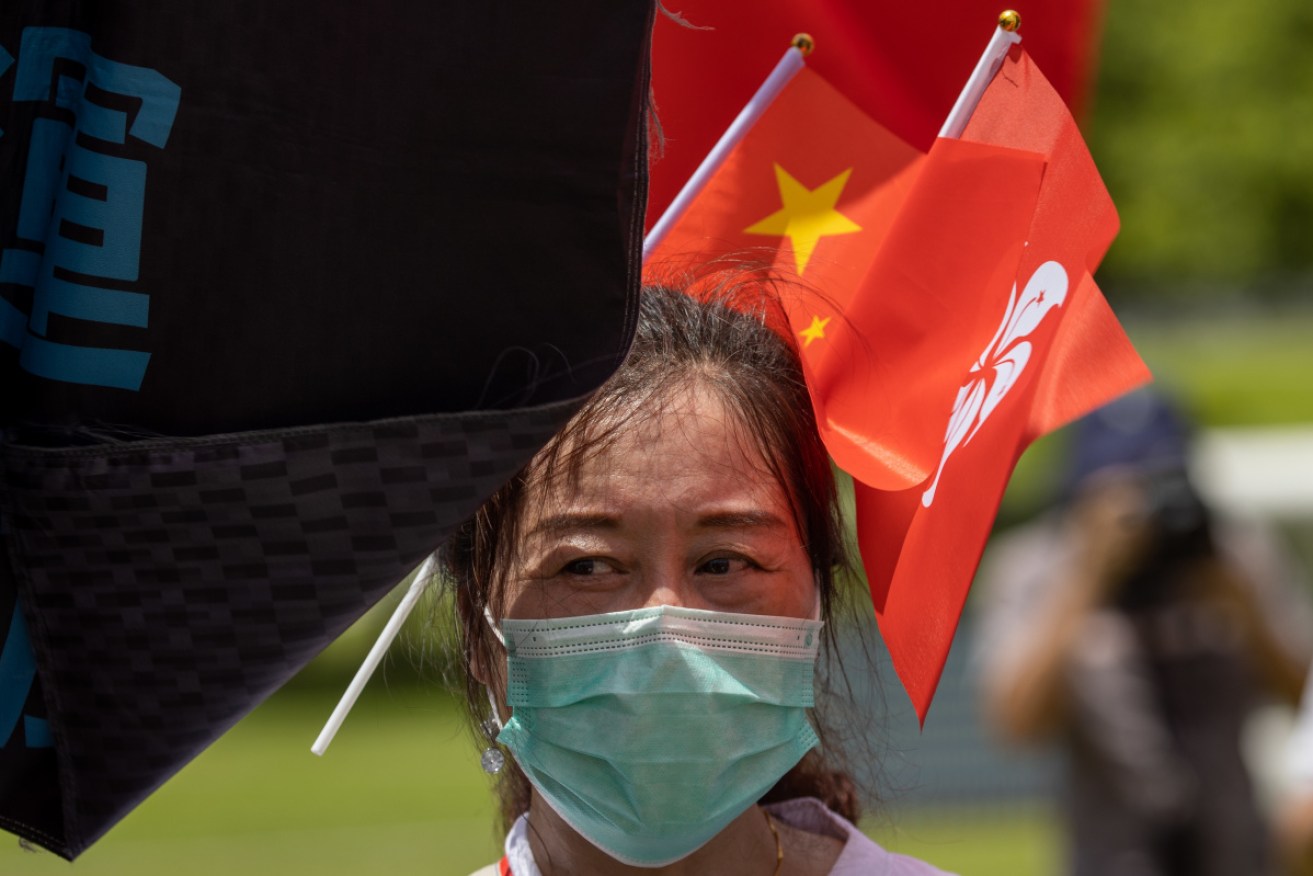China’s parliament passes Hong Kong security law

A pro-China supporter displays Chinese and Hong Kong flags during a rally in Hong Kong on Tuesday. Photo: AAP
China’s parliament has passed national security legislation for Hong Kong, setting the stage for the most radical changes to the former British colony’s way of life since it returned to Chinese rule 23 years ago.
State media is expected to publish details of the law, which comes in response to last year’s often-violent pro-democracy protests in the city and aims to tackle subversion, terrorism, separatism and collusion with foreign forces, later on Tuesday.
Amid fears the legislation will crush the financial hub’s rights and freedoms, and reports the heaviest penalty would be life imprisonment, prominent pro-democracy activist Joshua Wong said he would quit his Demosisto group.
“It marks the end of Hong Kong that the world knew before,” Mr Wong said on Twitter.
The legislation pushes Beijing further along a collision course with the United States and other Western governments, which say it erodes the high degree of autonomy the city was granted at its July 1, 1997, handover.
Tweet from @joshuawongcf
The United States began eliminating Hong Kong’s special status under US law on Monday, halting defence exports and restricting the territory’s access to high-technology products.
Hong Kong leader Carrie Lam said it was not appropriate for her to comment on the legislation as the meeting in Beijing was still going on, but she threw a jibe at the United States.
“No sort of sanctioning action will ever scare us,” Lam said.
The editor-in-chief of the Global Times, a tabloid published by the People’s Daily, the official newspaper of China’s ruling Communist Party, said on Twitter the heaviest penalty under the law was life imprisonment.
Authorities in Beijing and Hong Kong have repeatedly said the legislation is aimed at a few “troublemakers” and will not affect rights and freedoms, nor investor interests.
This month, China’s official Xinhua news agency unveiled some of the law’s provisions, including that it would supersede existing Hong Kong legislation and that the power of interpretation belongs to China’s parliament top committee.
Beijing is expected to set up a national security office in Hong Kong to “supervise, guide and support” the city government. Beijing could also exercise jurisdiction on certain cases.
It is unclear which specific activities are to be made illegal or what punishment they carry.
Police have banned this year’s rally on the anniversary of the 1997 handover, citing coronavirus restrictions. It is unclear if attending the rally would constitute a crime if the law came into force by Wednesday.
Hong Kong is one of many developing conflicts between China and the United States, on top of trade, the South China Sea and the coronavirus pandemic.
Britain has said the security law would violate China’s international obligations and its handover agreement.
A Japanese official said if China had passed the law, it was “regrettable”, while Taiwan said it “strongly condemns” the legislation.
The European Union has said it could take China to the International Court of Justice in The Hague over it.








